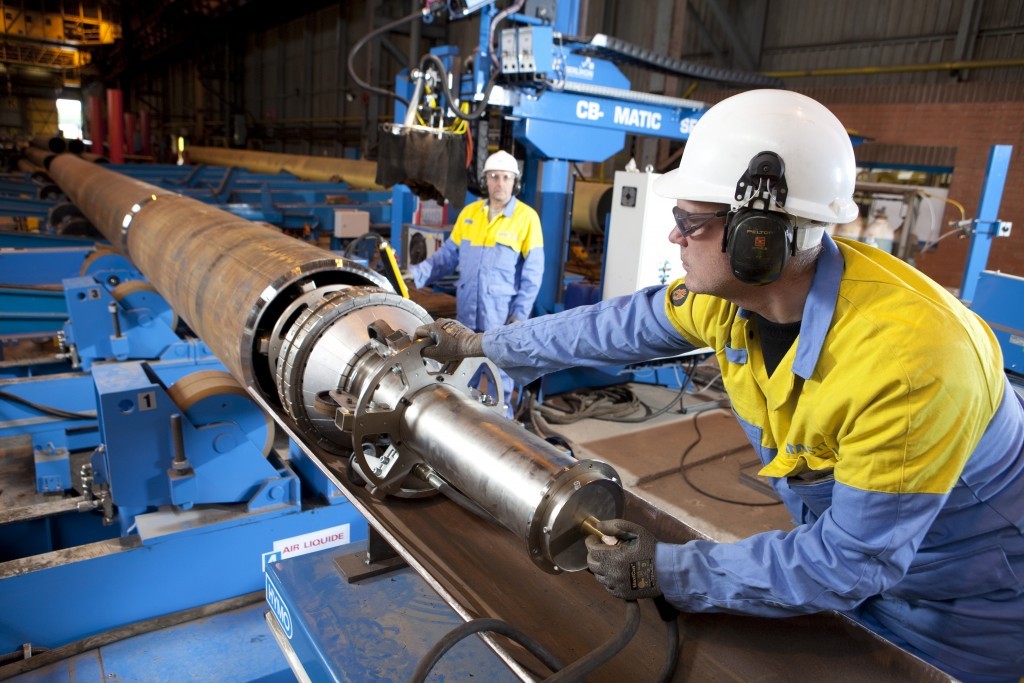
Scrutiny of the Government’s handling of the crisis-hit British steel industry is increasing after another 1,000 jobs were axed in a devastating blow to steel-making communities.
Indian-owned Tata confirmed workers’ fears when it unveiled plans to cut 750 posts at the huge Port Talbot plant in South Wales, 200 in support functions and 100 at steel mills, affecting Llanwern, Trostre, Corby and Hartlepool.
Almost 5,000 job losses have now been announced in the steel industry since last summer as firms struggle with high energy costs, business rates and cheap Chinese imports.
Previously announced cuts include 2,200 at Redcar (SSI), 900 at Scunthorpe (Tata), 450 at various locations (Caparo), 225 at Dalzell (Tata) and 45 at Clydebridge (Tata).
Welsh actor Michael Sheen warned about the impact the job losses would have on Port Talbot.
“It’s a very frightening time for the town,” he told BBC 2’s Newsnight.
The star, who has appeared in films including The Queen and The Damned United, called on the Government to be “honest” about whether it was letting the industry “die by stealth”.
He added: “The Government says that they are doing everything they can to help it but their actions and their words don’t really fit together.”
Karl Koehler, chief executive of Tata Steel’s European operations, said “tough actions” were critical in the face of market pressures.
He called for a speedy response by the European Commission to curb unfairly traded imports that threaten the whole industry.
The Government came under attack from unions and Labour for doing “too little, too late”, and offering merely “warm words”, but ministers defended their action in supporting the industry.
Prime Minister David Cameron said there was a worldwide glut and over-production of steel, affecting countries around the world. He stressed the Government had taken action on energy prices, procurement and with the European Union.
“I want to have a strong British steel industry at the heart of our important manufacturing base,” he said.
Roy Rickhuss, leader of the Community union, hit back, saying: “If David Cameron wants to support the steel industry and make sure his Government doesn’t preside over the end of steel-making in the UK, then he needs to stop being weak on China.
“Everyone in the industry is clear that unfairly traded Chinese steel is the biggest contributor to the UK steel crisis and yet the Prime Minister and his Government are cheerleading for China in Europe.
“You can’t wring your hands over steel job losses and then shake hands with the Chinese government over cosy trade deals.”
Shadow business secretary Angela Eagle said there were warm words from the Government, “but very little concrete action”.
Business minister Anna Soubry insisted the Government had responded to demands from the steel industry and was creating a “level playing field”, such as cutting energy costs.
Workers and businesses in Port Talbot were despondent, saying they now needed Tata to give assurances about the job prospects of the 3,000 employees who will remain after the latest redundancies.
Alan Coombs, a Port Talbot steelworker and president of Community, said: “Here in Port Talbot we make some of the world’s best steel, but cheap Chinese imports and high energy costs are crippling our industry.”
Gareth Stace, director of trade body UK Steel, said: “This is deeply disappointing news and I am very concerned about the future of the plant and community. This is a site of critical importance to our national industrial infrastructure.”
First Minister of Wales Carwyn Jones announced that a task force will meet on Wednesday to draw up an action plan to support workers and local supply chains.
Recommended for you
